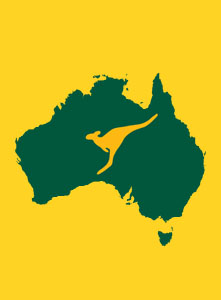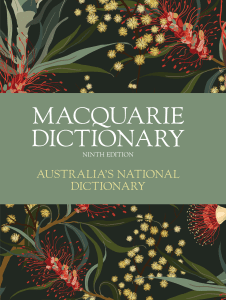As editors of the Macquarie Dictionary, we wear many hats. One of the tasks that comes to us regularly is to create lists of words for spelling bees. This is a monumental undertaking, and one which requires a high level of detail.
First, we have the word selection itself
There are many thousands of words in Australian English. Selecting those which make up the list for a spelling bee is a herculean task. (There, we’ve just given you a new word to add to your word bank!) We cover a huge range of words, which are quite easy to start with, but progressively get harder and harder. We have a database of words with all sorts of information – level of difficulty, subject area, pronunciation, whether the word has a variant spelling, whether it is a homophone, and so on, as well as information about when it was last used in the competition, whether it was in the Junior or Senior section – it’s pretty complicated! Studying for and participating in spelling bees are, after all, a great opportunity to reinforce the words you already know, but also, to branch out and learn about terms you may not already be familiar with.
Then the words need to be graded
Many people think that grading is simply based on the length of a word. There are many more factors we look at when deciding on a difficulty level. Some of these include a word has silent letters, double letters, an unexpected or difficult pronunciation, if it comes from another language, or whether the word needs a spelling rule applied. Familiarity is another consideration, but this can vary with life experience – a child who learns music is likely to be fine with crescendo, a word which would stump many spellers, and someone of Italian heritage would find passata and focaccia a breeze. Not so likely for a child of Vietnamese background, who would be fine with pho, and so on. There are also other “fiendishness” factors which come into play but they’re top secret!
But we do have some tips to help you while you’re studying
New words
Every time you come across an unfamiliar word, you should look it up in the dictionary. Knowing what a word means, and sometimes its origin as well, makes it much easier to remember. Try using it in everyday conversation until you are comfortable with it.
Long words
Take your time when it comes to long words. Just because a word is long doesn’t necessarily mean that it is harder to spell. Many long words consist of a root word with prefixes and suffixes. It’s easy to lose track of where you are when spelling the word out loud so break it down into syllables and tackle it one syllable at a time.
Homophones
Homophones are words which sound the same but have different spellings like air and heir. This makes homophones one of the trickiest areas of spelling so make sure you listen to the sentence given so you know which meaning you are being asked to spell.




